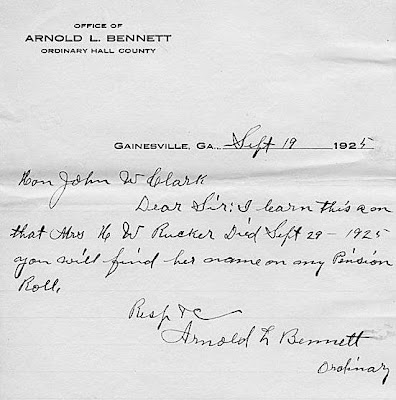
I have several private trees at
Ancestry.com. I largely use them to keep track of things I have already found on
Ancestry.com, particularly families I am researching for
Casefile Clues. These online trees are not my "real" databases--I don't use Ancestry's cloud for my personal research, largely because I'm a down to earth person.
Sometimes I do find the leaves helpful, if for no other reason than it saves time in locating certain things. Does
Ancestry.com find things that are totally "out there?" Of course. Do they find things that are correct? Yes. Like any other source, one has to constantly be evaluating and judging. I don't often use the trees of others, unless I'm trying to connect with others working on the same brick wall people that I am.
I don't even always contact other submitters. In many cases, I can tell they've most likely not done any original research--seeing "errors" from my early days of research is a good indicator of this. I won't share those errors here, but I know them when I see them and I can tell that the person hasn't done any "new" work or they would have picked up on the errors themselves.
The image with this blog post makes the point I was originally going to make with this post:
"the leaves don't often help on your real brick wall problems"
The leaves on my tree as shown above appear for all the names, sans one, Benjamin Butler. The leaves are usually indicating there's a census record (which I already have, but just don't have "linked" in this tree) or to public member trees that pretty much are just copies of what I've already located myself.
Benjamin Butler, the guy I'm "really stuck on" has no leaves--no suggestions.
All the other suggestions are to things I've already found and that someone else has submitted--except for Clark Sargent whose family has been documented to early New England families.
I find that the leaves aren't always there for the people on whom I'm really stuck. Or if they are, the suggestions are really out in left field.
A part of this problem is that
Ancestry.com's leaves are not all that helpful for pre-1850 era American families when someone hasn't already done (or tried to do) the work. When there's not a tree that may provide suggestions, the leaves just aren't that helpful in this era.
And so I'm back to working on Benjamin Butler, without leaves.
Ancestry.com's indexes will help me, but there probably won't be any leaves and I'll have to be using records besides those on Ancestry.
At least in my experience.




